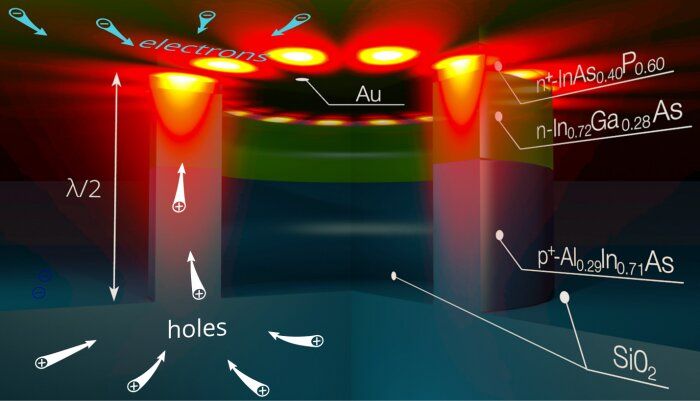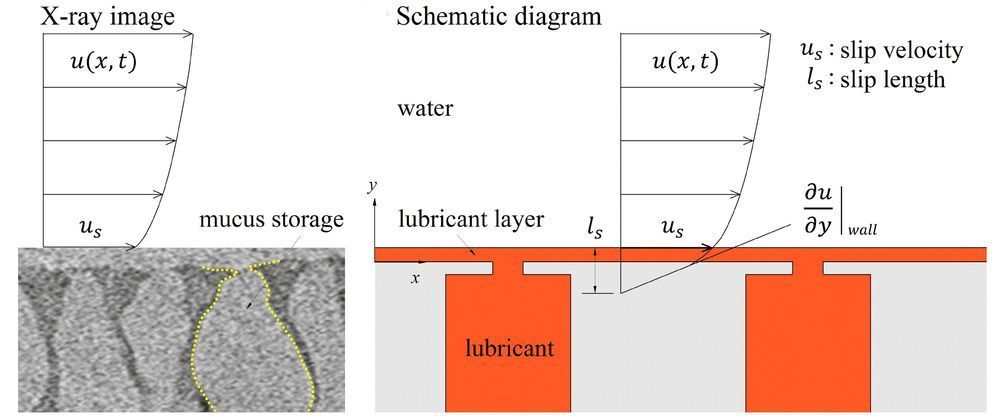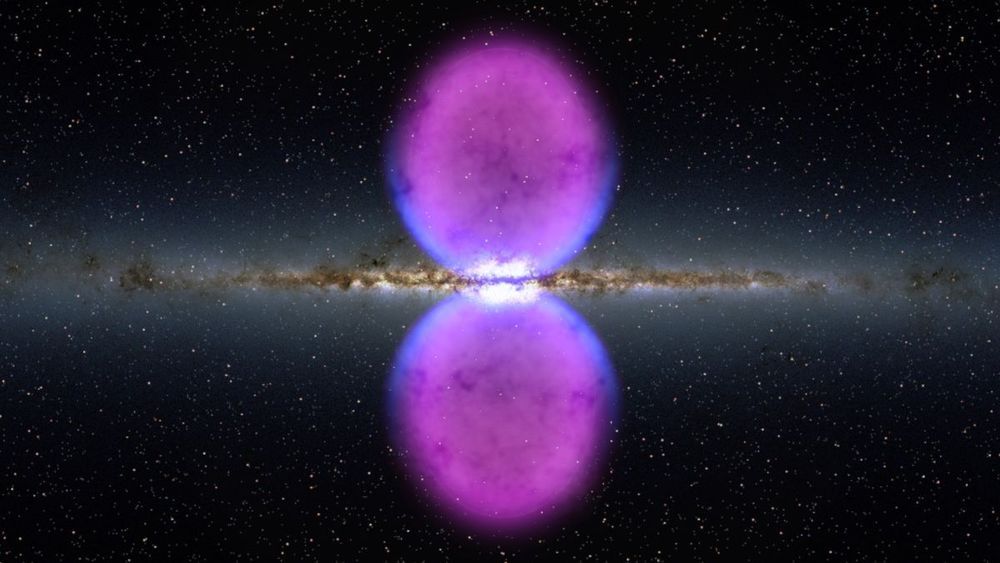Researchers from the Moscow Institute of Physics and Technology and King’s College London cleared the obstacle that had prevented the creation of electrically driven nanolasers for integrated circuits. The approach, reported in a recent paper in Nanophotonics, enables coherent light source design on the scale not only hundreds of times smaller than the thickness of a human hair but even smaller than the wavelength of light emitted by the laser. This lays the foundation for ultrafast optical data transfer in the manycore microprocessors expected to emerge in the near future.
Light signals revolutionized information technologies in the 1980s, when optical fibers started to replace copper wires, making data transmission orders of magnitude faster. Since optical communication relies on light—electromagnetic waves with a frequency of several hundred terahertz—it allows transferring terabytes of data every second through a single fiber, vastly outperforming electrical interconnects.
Fiber optics underlies the modern internet, but light could do much more for us. It could be put into action even inside the microprocessors of supercomputers, workstations, smartphones, and other devices. This requires using optical communication lines to interconnect the purely electronic components, such as processor cores. As a result, vast amounts of information could be transferred across the chip nearly instantaneously.







